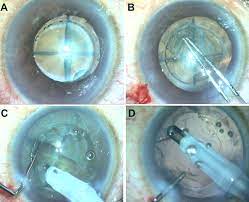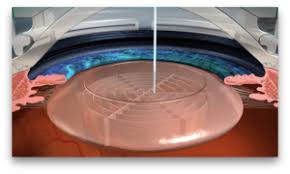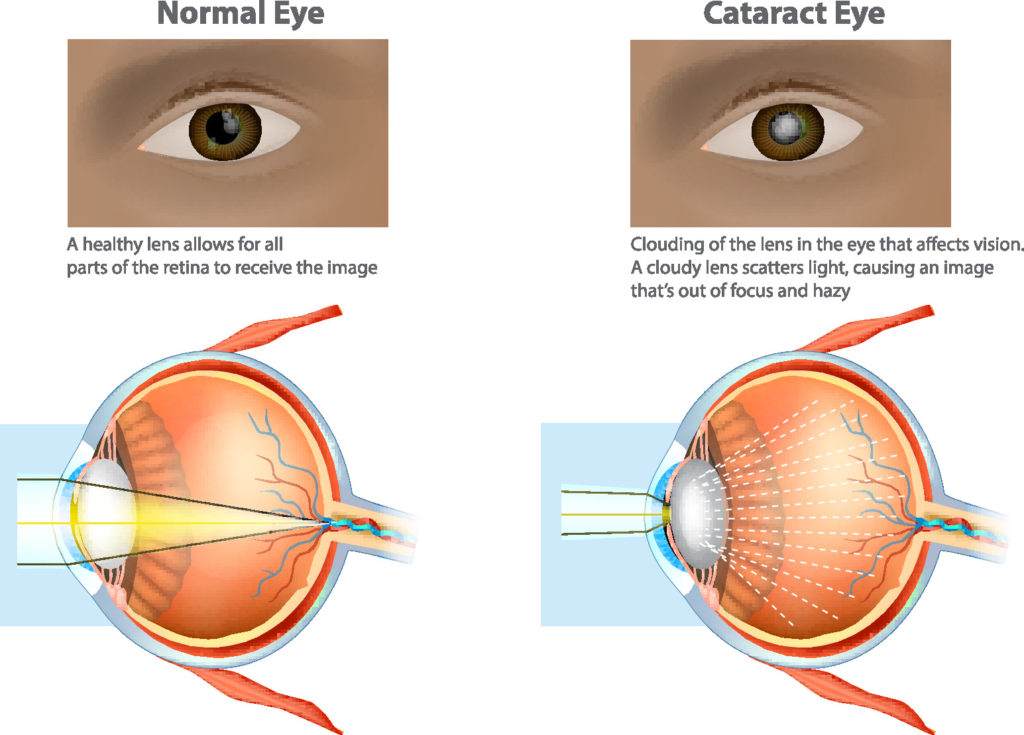If you are scheduled for a flacs surgery, also known as a laparoscopic adjustable gastric banding procedure, then you may be feeling a little anxious. This type of surgery is becoming more and more popular, but there is still a lot of confusion about it. In this blog post, we will discuss everything you need to know about flacs surgery. We will talk about the benefits, the risks, and what to expect during and after the procedure.
Contents
- 1 What Is FLACS Surgery?
- 2 How Does FLACS Surgery Work?
- 3 Is Femtosecond Cataract Surgery Better?
- 4 What Is The Cost Of Femtosecond Laser Surgery?
- 5 What Is The Difference Between FLACs And Traditional Cataract Surgery?
- 6 Is Femtosecond Laser Surgery Safe?
- 7 What Are The Benefits Of FLAC Surgery?
- 8 Risks
- 9 Preparing for FLACs Surgery
- 10 Recovering from Flacs Surgery
- 11 Conclusion
What Is FLACS Surgery?

FLACS is a cutting-edge, femtosecond laser technology that helps surgeons perform challenging cataract replacement procedures with greater precision. This minimally invasive procedure offers reproducible results, making it an attractive option for patients and doctors alike.
During a FLACS procedure, the surgeon makes tiny incisions in the eye to access the cataract. A small laser is then used to break up and remove the cataract. Following this step, an artificial intraocular lens (IOL) is implanted into place. The entire process takes about 10 minutes, but recovery times vary depending on the individual.
How Does FLACS Surgery Work?

Femtosecond laser-assisted second surgery (Flacs) is a relatively new procedure in the field of refractive surgery. It combines femtosecond laser technology with traditional excimer laser techniques to offer a more precise and effective alternative to standard LASIK surgery.
The operation itself is performed in a dedicated laser suite, although the patient looks at a light to align their eyes with the laser. The machine takes detailed images of the cornea (clear outer surface) and the cataract. It measures the exact position of the anterior capsule, which covers the front part of a natural lens.
The operation itself is performed in a dedicated laser suite, although the patient looks at a light to align their eyes with laser. The machine takes detailed images of the cornea (clear outer surface) and the cataract. It measures the exact position of the anterior capsule, which covers the front part of a natural lens.
During Flacs surgery, an eye surgeon will use the femtosecond laser to create a thin flap on the cornea. This flap is then carefully lifted, revealing a layer of the eye’s tissue beneath it. The excimer laser is then used to reshape the underlying corneal tissue to correct vision problems like nearsightedness, farsightedness, and astigmatism.
Once the reshaping of the cornea is complete, the flap is then repositioned and allowed to heal on its own. The entire procedure usually takes about 15 minutes, but may take longer depending on the individual case.
Is Femtosecond Cataract Surgery Better?
Femtosecond laser technology was not found to improve outcomes in cataract surgery compared to traditional phacoemulsification methods. Additionally, it carries higher costs, and there is no evidence of a benefit to healthcare systems or patients.
What Is The Cost Of Femtosecond Laser Surgery?
The cost of femtosecond laser cataract surgery can vary depending on the complexity of the procedure and the surgeon’s experience. Fees typically for per eye range from 18000- 1,00,000.
Femtosecond laser surgery is a minimally-invasive procedure that uses laser energy to treat problems such as eye problems. By using pulses of very short laser light, surgeons are able to remove areas of cataracts without causing damage or pain.
What Is The Difference Between FLACs And Traditional Cataract Surgery?
FLACS would make cataract surgery safer and more accurate, leading to better visual outcomes. A laser is used to create an incision in the cornea, open the cataract membrane or capsules, and then remove the cataract. Traditional cataract surgery involves a blade to create an incision in the cornea and then using sound waves to soften and remove the cataract with ultrasonic energy.
Getting the surgery you need for your cataract can be a long and difficult process. FLACS uses a laser to create an incision in the cornea, and then we can remove it using various techniques. We can also use ultrasonic energy (sound waves) to soften and remove the cataract without even having to make any incisions.
Is Femtosecond Laser Surgery Safe?
FLACS is safer than traditional cataract surgery. With a pre-programmed laser, the procedure is highly accurate, less likely to damage surrounding structures of the eye, and decreases your risk for infection.
Complications may be associated with eye infections as well as retinal (the light-sensitive tissue at the back of the eye) detachment, which requires follow-up surgery. FLACS also features reproducible and perfectly round capsulotomies. This makes it easier to precisely place the artificial lens inside the eye, limiting any tilt which could lead to poor vision.
What Are The Benefits Of FLAC Surgery?
There are numerous benefits of FLACS in the medical field that fall into three general categories: safety, visual results, and time.
Safety
‘Safety’ is something that can be understood from a definition perspective, but not fully comprehended in the way it’s used. There is a certain level of risk in every surgery, no matter how safe it may be. Cataract surgery may still carry some risk, but when compared to other surgeries, it falls firmly on the low end of risk.
Visual
Patients who have quality lenses to help with their vision often report a high sense of satisfaction. Advanced technologies make it easy for them to get the lenses they need when no doctor can quite fulfill their prescription, giving them better accessibility and quality lenses.
Time
Time is money. Researchers look into whether new technologies save time for the surgeon during surgery, improve recovery time for patients following the surgery, or reduce expenses for the hospital that provides care.
Additional Benefits
There are additional benefits
- Reduced recovery: FLACs surgery offers reduced recovery times compared to traditional open surgeries, meaning that you can return to normal activities faster.
- Reduced Risk of Infection: Due to the minimally invasive nature of FLACs Surgery, the risk of infection is significantly reduced.
- Minimal Scarring: FLACs Surgery requires only small incisions and results in minimal scarring.
- Improved Outcomes: The precision of FLACs Surgery offers improved treatment outcomes compared to traditional open surgeries.
- Cost-Effectiveness: Due to the reduced recovery times and improved outcomes, FLACs Surgery can often be more cost-effective than open surgeries.
Risks
The risks associated with FLACs Surgery are as follows:
Nerve Injuries
The precision of the procedure can result in nerve injuries at the site of incision.
Bleeding and Complications
As with any surgery, there is a risk of bleeding and complications.
Infection
The risk of infection can increase when the skin or tissue near the incision site has been contaminated.
Damage to Internal Organs
Due to the precision of the procedure, there is a small chance of accidental damage to nearby organs.
Adverse Reactions to Anesthesia
As with any procedure requiring anesthesia, there is a risk of adverse reactions.
Preparing for FLACs Surgery
Before undergoing FLACs Surgery, it is important to prepare properly in order to reduce the risks associated with the procedure and improve its outcome. This includes:
Discuss your medical history with your doctor
Before undergoing any procedure, it is important to discuss your medical history with your doctor in order to identify any potential risks or complications.
Quitting Smoking
Smoking can increase the risk of complications during surgery and slow down the healing process after surgery, so quitting before undergoing FLACs Surgery is recommended.
Limiting Alcohol
Drinking alcohol can interfere with the anesthetic and increase the risk of bleeding during surgery, so it should be avoided for at least seven days before your procedure.
Eating a Healthy Diet
Eating a healthy diet can help to ensure that your body has enough nutrients to aid in the healing process.
Recovering from Flacs Surgery
The recovery process after undergoing FLACs Surgery depends on the individual and the procedure performed. Generally, the following steps are recommended:
1. Take Pain Medication as Prescribed: It is important to take any pain medication prescribed by your doctor in order to manage any discomfort during recovery.
2. Follow Post: Surgery Instructions: Following the instructions provided by your doctor after surgery is essential for a successful recovery.
3. Manage Swelling: Elevating the area of surgery and applying a cold compress can help to reduce swelling and discomfort.
4. Take it Easy: It is important to rest during recovery so that your body has enough time to heal properly.
5. Listen to Your Body: If you experience any unusual symptoms or discomfort during recovery, it is important to contact your doctor.
Overall, FLACs Surgery can offer many benefits when compared to traditional open surgeries. However, it is important to discuss any potential risks with your doctor and prepare properly before undergoing the procedure in order to ensure a successful outcome. Furthermore, following post-surgery instructions and taking the necessary steps during recovery is essential for a successful healing process.
Conclusion
It may be concluded that flacs surgery is a safe and effective treatment option for those suffering from certain medical conditions. It can help reduce pain, improve mobility, and even extend life expectancy in some cases. However, it is important to discuss the potential risks with your doctor before making any decisions about surgery. As always, you should also make sure that you are aware of all the costs associated with the procedure. By doing so, you can ensure that you make informed decisions about your health and well-being.
Flacs surgery is a safe and effective treatment option for many medical conditions when performed correctly by a qualified surgeon. As with any medical procedure, risks exist. Be sure to discuss all of the potential risks with your doctor before deciding if this procedure is right for you. With the right information, flacs surgery can make a significant difference in your life.
Cataract surgery is a safe and painless procedure. At MantraCare we have a team of experienced eye surgeons, who will be happy to answer any questions on cataract surgery. Call us at +91-9711116605 for any inquiries.
